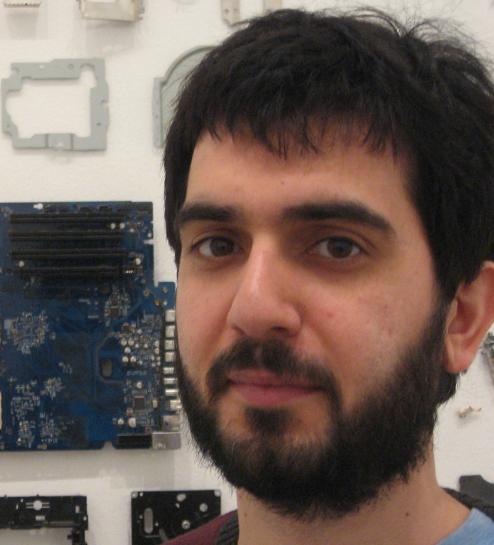The following is a special contribution to this blog by Shay Cohen. Cohen was a 2011-2013 Computing Innovation Fellow (CIFellow) at Columbia University. He is now a Chancellor’s Fellow in the School of Informatics at the University of Edinburgh.
 When I finished my graduate studies and defended my thesis at Carnegie Mellon in September 2011, I had already started my position at Columbia as a CIFellow with Michael Collins. It was actually not too long before my defense that I heard about being awarded a CIFellowship. It was a great relief to learn this — I had already heard from a few other previous-year CIFellows that the program is great and has many advantages. Little did I know it would have such profound impact on my post-doc.
When I finished my graduate studies and defended my thesis at Carnegie Mellon in September 2011, I had already started my position at Columbia as a CIFellow with Michael Collins. It was actually not too long before my defense that I heard about being awarded a CIFellowship. It was a great relief to learn this — I had already heard from a few other previous-year CIFellows that the program is great and has many advantages. Little did I know it would have such profound impact on my post-doc.
The main focus of my research is natural language processing (NLP) and machine learning. I aim to develop algorithms and methodology to learn statistical models from natural language data. At Columbia, I was working with Michael Collins and other collaborators, on developing so-called “spectral learning algorithms” for learning latent-variable models for language. It is an exciting topic that continues to expand in machine learning and NLP.
To go back to the impact that the fellowship had on my post-doc: the Computing Innovation Fellowship and my post-doc advisor prepared me to be more of an independent researcher. If it were not for the CIFellowship, I would probably have been tied to a very specific project that would have provided less freedom as my post-doc progressed. The CIFellowship, however, let me work independently on various things in addition to the main project I was working on with my post-doc advisor.
Don’t get me wrong — I had quite a lot of freedom during my graduate studies and was never pressured one way or the other by my advisor. But still, the CIFellowship *formally* enables this kind of independence — it is written in the rules of the game, and that gives a different feeling to it than being a graduate student.
Here is another example of this support for independence and development. Being a CIFellow let me test my ability to be the main instructor for a class (the class I taught was Bayesian Analysis in Natural Language Processing). I discovered that there is a reason I like to teach — being in the classroom with motivated students who are engaged and ask many questions is empowering. But on the other hand, I also discovered that preparation for teaching a class is a very time-consuming process. It has its perks — you get to survey material and understand it better at its basic level, but… it takes time and significant effort.
The freedom this fellowship came with applies to its bureaucracy as well. I was at first surprised at this. As long as I provided evidence that we were making progress in our research, everything was fine. This had a positive effect — not only does this trust motivate you to work well in reciprocation, but it also removes potential stress about continuation of funding. I even significantly deviated from my original proposal for the fellowship, but it was apparently understood and well-accepted by CRA that such things happen. This is, I believe, how research should be carried out and this is the kind of trust that should be given to researchers by funding agencies.
When I think back about the period of time I spent at Columbia as a CIFellow, I remember it fondly. Columbia has so many great NLP and machine learning researchers. It was very enjoyable working with Mike and also his students, Karl and Sasha, and I am still in touch with some of the people I met there today. A bonus of Columbia is that it is situated right in Manhattan, where nothing ever stops, perhaps a compensation for the size of the apartment you can afford to rent there as a post-doc (limited storage space).
After my CIFellowship ended, I was happy to get an opportunity to come to Edinburgh. I already knew quite a few people in the university from previous encounters, and got the impression it would be enjoyable to work here. I was happy to hear that my job talk was well-received and started planning the move with my family once we finally made the decision to accept Edinburgh’s offer.
Edinburgh has a great program for NLP and machine learning research, and I have been enjoying working here with everybody. I am now an independent researcher in Edinburgh, and the CIFellowship had a large part in shaping my views in performing such a role. (Edinburgh is also a nice city with a rich history, and we have already explored many parts of it by foot.)
Even though it was anticipated to be used as a short-term relief for post-docs, I was sad to hear that the CIFellowship project has ended. I hope there will be many other opportunities for post-PhD researchers to experience the independence it provided.









